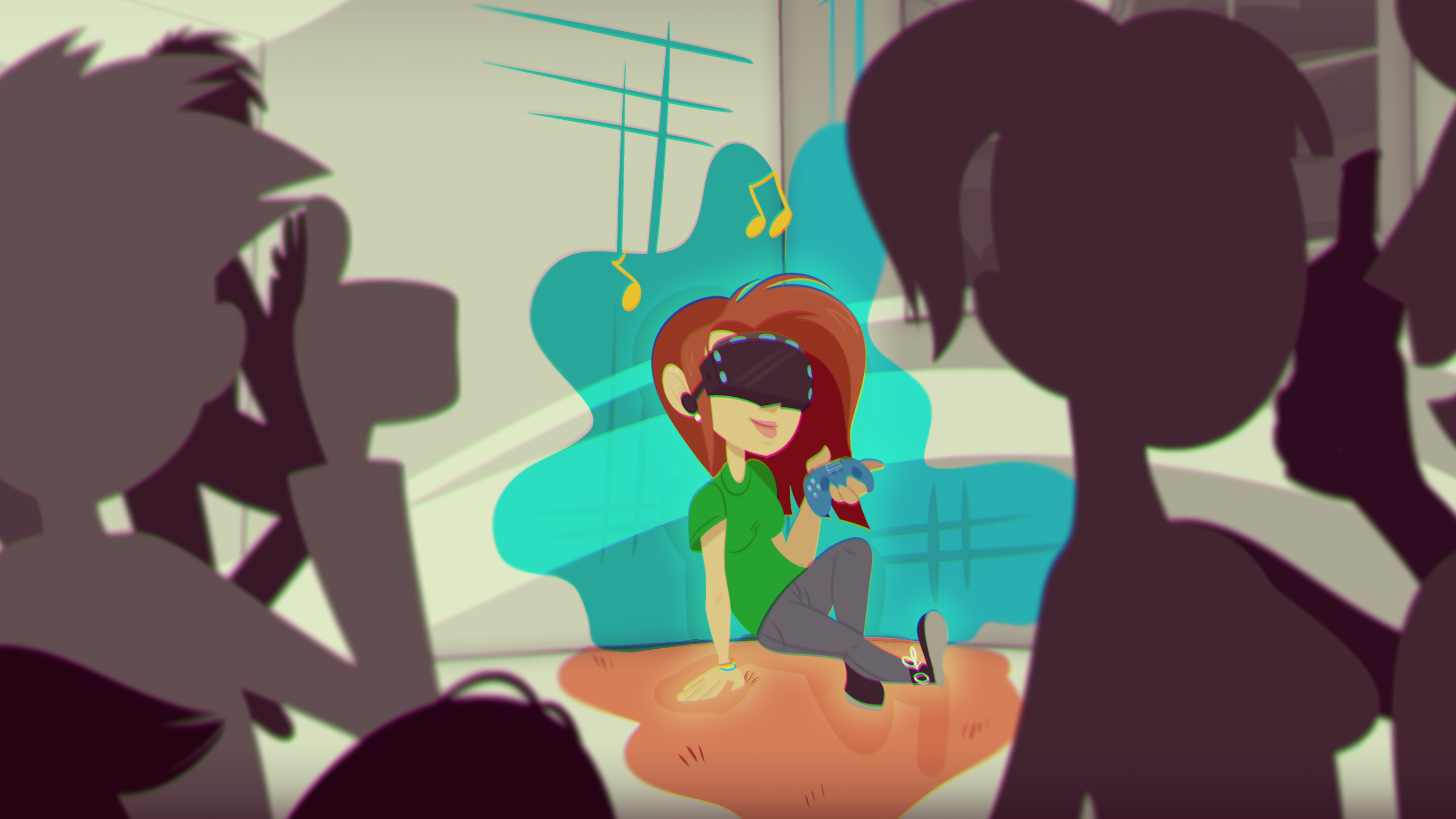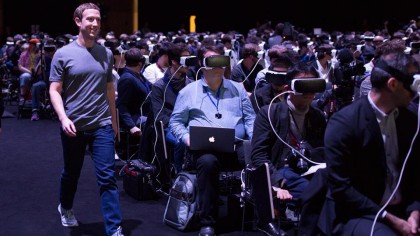The wonderful loneliness of virtual reality
VR won't always be a social experience, and that can be a very good thing

Sign up for breaking news, reviews, opinion, top tech deals, and more.
You are now subscribed
Your newsletter sign-up was successful
What do you do when a friend puts on a virtual reality headset? Perhaps it's not a situation you've encountered – most commercial VR kits, like the Oculus Rift, HTC Vive and Playstation VR, aren't yet on the market.
But I have, and I can tell you – it's a bit awkward. You can stand and watch as your friend goes "ooh" and "aah", which feels creepy because they don't know you're watching. Or you can go off and do something else and wait for them to be finished, which feels a bit like abandoning a baby.
"These headsets change the way you exist in the real world," wrote Dieter Bohn in a recent review of the Avegant Glyph. "Somebody wearing one of these headsets is like an inverse ghost — the body is there, but the spirit has passed beyond."
This is one of the biggest problems that VR is going to face when it arrives in the world's living rooms. Unlike watching a movie, listening to music or playing a console game, where anyone else in the same room gets approximately the same experience, putting on a VR headset is isolating. Detached. Lonely.
But does that actually matter? Isolating yourself for entertainment purposes is nothing new. Headphones let us listen to music without the sound of the world outside intruding. For centuries, people have loved to curl up with a book. With so many demands on our time in modern life, the ability to escape has never been more important.
Social dynamics
"[Virtual reality] devices lead to deeply insular solitary experiences," explains Brendan Walker, a 'thrill engineer' who consults for theme parks and has built virtual reality into a series of interactive installations over the past few years. "If that is seen to be a problem, that people say it separates us, then it's a massive issue. But if it's embraced sensitively, then I think maybe it's the only hurdle [preventing mass acceptance of the technology]."
Walker's recent work confronts the real/fake dichotomy of virtual reality head-on. At Sheffield Doc/Fest in 2015, he combined a traditional children's playground swing with an Oculus Rift headset to allow people to feel like they were swinging higher and further than they actually were, while those queuing for the experience could watch.
Sign up for breaking news, reviews, opinion, top tech deals, and more.
"This led to [people] shrieking with gay abandon in the virtual world but then a sudden realisation that they were actually also in the real world performing to an audience of queuing spectators," he explains. "Then people would sort of clam up. And it was this awkwardness fluctuating between the real and the virtual world that created the movement and emotions which was necessary to create a thrilling experience."
Another of Walker's rides, which was exhibited at Nesta's FutureFest in 2015, placed volunteers wearing both a VR headset and brain activity sensors on top of a motion simulator. The output of the sensors was used both to drive the simulator and to create an audiovisual experience that was seen through the headset.
But the audiovisual experience could also be seen and heard by a crowd watching big screens surrounding the installation. It allowed the crowd to participate in the experience.
"The most interesting thing for me was the moment of putting on the virtual reality mask and taking it off", he told Jisc in an interview. "That movement between being in a real world in the presence of an audience and then being immersed in a very insular solitary experience. Both of them have very different social dynamics, and the movement between the two creates the thrill."
Dystopia or Utopia?

There was considerable disquiet recently when a photo emerged (above) of Mark Zuckerberg striding through a crowd of people wearing VR headsets at Mobile World Congress. Some saw it as a glimpse into a dystopian future where people spend their entire existence in VR and shun the real world. Zuckerberg, of course, disagreed.
Walker, too, disagrees with this vision. "It'll never happen," he says. "The body, in space, is absolute king when it comes to experience. You only have to move the body a very short amount of space, or excite the viscera, and the overwhelming emotions – the physicality that creates – will immediately swamp out any other emotional effects created, whether it's visually, audibly, or through some subtle remote interaction."
"These kind of experiences will only lead to some kind of impoverished existence, so I don't think people will tend towards them," Walker added. "They're novel, and as long as the frontiers of technological advancement can keep providing novelty, then people will keep coming to those, but as soon as that stagnates, people will revert back to physical experience, I think."
Meanwhile, there's very real potential for virtual reality to help some of the loneliest people in society today. The disabled, the elderly or even just people working in remote areas could use the technology to be a part of a wider community without having to physically be there. The internet has already allowed tens of millions worldwide to meet people and pursue real-world interests they wouldn't otherwise have been able to. Virtual reality is an obvious extension of that capability.
The technology has even been mooted as a possible way to safeguard space travellers on lengthy voyages from loneliness, connecting them with their loved ones from millions of miles away. "It's clearly impractical or impossible for astronauts in a space station to engage with their family," says Walker. "Enriching their visual and audio experience will lead to a richer sustaining of existing social bonds, or even building new ones."
Already companies are working on virtual spaces for people to inhabit together, but so far they look more like Second Life than The Matrix. In the long run, it's very possible that today's vibrant messageboard communities will take a more three-dimensional form, allowing people anywhere in the world to meet and exchange ideas and perspectives.
So instead of seeing the loneliness of virtual reality as a negative, we should look on it as a blessing. It lets us connect with those we'd never normally have the chance to, widening our horizons and making us better people. Even when we're venturing through virtual worlds alone, it's worth remembering that many find as much joy in solitude as others do in company.
As for the idea that we'll shun reality, it's going to be a long time before VR can conjure up the smell of rain, the taste of pizza or the feeling of hot sand between the toes. By the time it does, it's likely that concepts like "reality" will be something only your grandparents remember.

